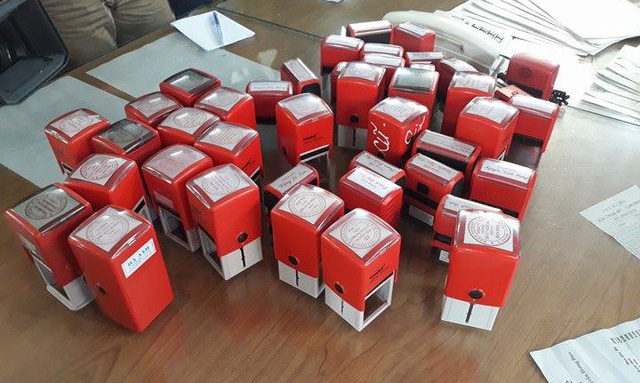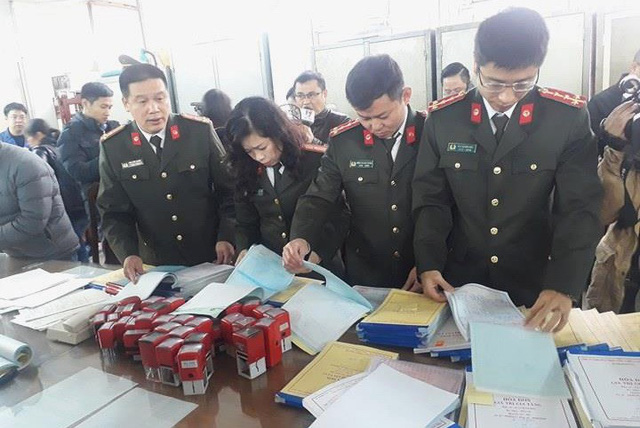Police in Hanoi have broken up an illegal crime ring specializing in the trade of fake tax receipts totaling VND590 billion (US$25.98 million).
The municipal Department of Police on Thursday arrested and began legal proceedings against Nguyen Thi Dao, 35, Bui Ngoc Truc, 20, Nguyen Van Thuan, 22, Bui Van Ho, 27, Le Hien Trang, 29, and Nguyen Thi Dao, 32, for the purchase and sale of counterfeit VAT (value-added tax) receipts.
An initial investigation uncovered that 35-year-old Dao had bought 17 local businesses since early 2017 to aid her expanding operation.
All 17 companies were previously owned by 32-year-old Dao, but none were able to turn a profit.
 |
| Seals are confiscated by officers. Photo: Tuoi Tre |
After their purchase, the firms had no specific field of business and were used primarily for trading fraudulent VAT receipts.
Dao, the ring leader, claimed her operation sold the fake sales slips at VND200,000 ($8.81) for purchase values under VND20million ($880). VAT receipts for purchase values over VND20 million were sold at .5 percent of their value.
Officers uncovered that the ring had forged nearly 3,500 bogus VAT receipts worth a total estimated value of VND590 billion (US$25.98 million).
Police also confiscated seals, sales slips, and other related.
Additional explanation on what people illegally trade VAT receipts for
Businesses buy fake VAT receipts to increase the input cost, thus leading to possible tax cuts when their profit declines, and benefit from VAT tax refund for input costs.
A VAT is a type of general consumption tax that is collected based on the increase in value of a product or service at each stage of production or distribution.
VAT is usually implemented as a destination-based tax, where the tax rate is based on the location of the customer.
According to current law, a business, if had previously paid the tax during the import of material for its production, will be allowed to ask for a VAT refund after a purchase has been made.
In order to be eligible with this refund, the company has to present the VAT receipts corresponding with the purchase.
In Vietnam, the VAT is often charge at 10 percent of the product value.
Like us on Facebook or follow us on Twitter to get the latest news about Vietnam!






















































